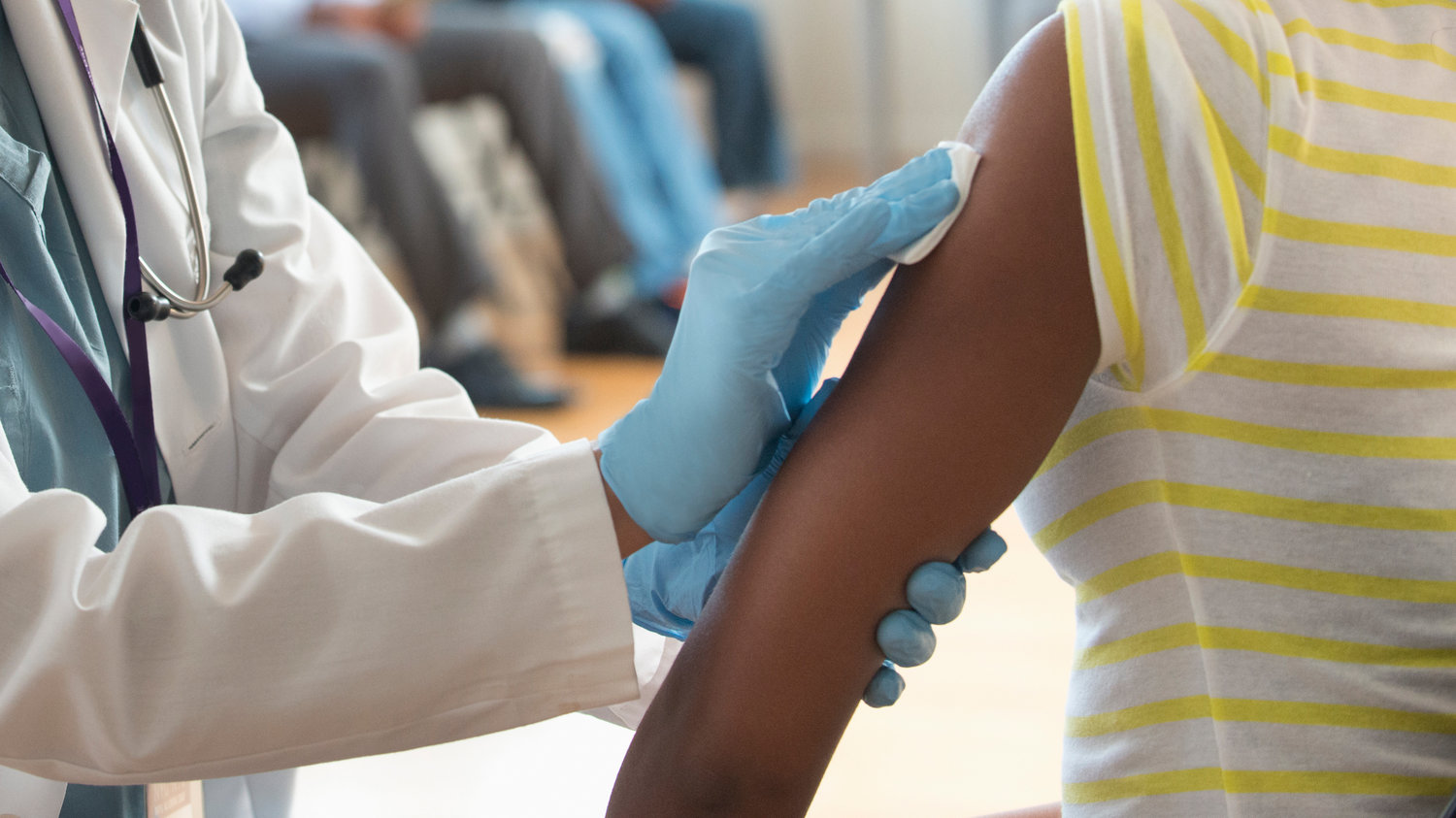
The COVID-19 vaccine is here, but racial disparities project Black, Latinx Americans aren’t out of the dark just yet
The hidden truths of the U.S. healthcare system were exposed in 2020, leaving little room for trust from those most affected by the virus.
Eleven months after the novel coronavirus first appeared in the United States, Black, Latinx, Native American and Asian patients continue to die far more frequently than White patients, even as death rates have plummeted.
In the first week of Covid-19 vaccine distribution in the U.S., there is heightened skepticism among Black and Latinx Americans on the efficacy and its intent. Behind this doubt is a history of reasons, but unfortunately it will result in many choosing not to get vaccinated.
Overcoming the collective trauma associated with systemic racism should be at the forefront as officials rush to distribute vaccines to hard-hit communities, especially said communities of color who have shouldered the burden of the pandemic.
But it won’t be easy.
Less than half of Black people and 66% of Latinx people said they would definitely or probably take the vaccine, according to a survey-based study conducted by the COVID Collaborative, the NAACP, and UnidosUS.
The study highlighted the challenge that is yet to be overcome: getting vaccines to the hardest-hit communities by the pandemic. The survey, released at the end of the Fall, is one of the most comprehensive to date.
The results were startling, as it found only 14% of Black Americans trust that a vaccine will be safe, and 18% trust it will be effective. Latinx Americans responded more optimistically — with 34% saying they trust the vaccine will be safe, and 40% believing in its efficacy.
In partnership with @WeAreUnidosUS & @NAACP, we’re addressing concerns around #COVID19 #vaccine in response to new poll with @LangerResearch, showing only 14% of Black Americans & 34% of Latinx Americans trust that a vaccine will be safe.https://t.co/OXB9T2Oqql
— COVID Collaborative (@TheCOVIDCollab) November 24, 2020
“Efforts to promote vaccine uptake in the Black community must directly confront and address the deep historical traumas that have created high levels of distrust in the COVID19 vaccine, and the government and healthcare system overall,” the study reads, emphasizing the need for advocates and healthcare workers to venture directly into communities with historical traumas.
Especially since data mapping the hardest-hit zip codes and municipalities exists.
But without transparency, there will be no incremental building of trust. The study explains that especially among Black individuals, they have a greater willingness to take the vaccine should the messaging be honest and comprehensive.
Pertaining to Black individuals especially, history should always be considered. Nearly all sources discussing distrust of vaccination efforts refer to the notorious Tuskegee Syphilis Study, not the only precursor to the distrust, but one of the most prominent and atrocious in modern history.
“Specifically, efforts should aim to highlight how vaccination can save Black lives and strengthen Black communities,” the study continues.
Since the pandemic first hit the nation on a widespread scale, Latinx communities have experienced a disproportionately high burden of infections and hospitalizations, “even when compared to Black communities,” reads the study.
The Latinx responses in the study were considerably higher in favor of the vaccine compared to Black respondents.
One factor for this, the study suggests, is because Latinx elected officials in one’s community are more likely to be trusted than white elected officials. It suggests efforts to promote distribution and uptake should leverage voices from within the Latinx community and “should reinforce the notion that vaccination is a responsibility” that benefits the community as a whole.
RELATED CONTENT
While the suggestions are promising, there is limited evidence of their employment across the nation. One thing is clear, there is considerable hesitancy and resistance within Black and Latinx communities due to historical traumas, and because of it they are put at a further disadvantage in vaccine uptake.
According to the CDC, rates of hospitalization from the virus among Black, Latinx and Native Americans are 2-4 times higher than for whites.
As the vaccine is making its first in roads across the nation, officials are now grappling with how to ensure that these populations receive the vaccine. At the top of the list are 21 million front-line health care workers, but who should come after?
“After them will probably be other essential workers, many of whom come from Black, Latino and Asian communities. Many can’t work from home, don’t have transportation and live in crowded housing,” reported the Washington Post.
California Gov. Gavin Newsom said last month that Black and Latino residents who have been disproportionately affected should be among the first to be inoculated, however,there has been no concrete plan or action plan yet.
In a press briefing Monday, Newsom briefly said that farmworkers may be eligible for prompt vaccinations as well. Action for this, too, is yet to be seen, in the state with the highest Latinx population and a significant population of Latinx farmworkers.
California is expected to receive around 2.1 million COVID-19 vaccines this month, and the state's 2 million healthcare workers are fighting for a spot in line. The vaccine requires two doses spaced three weeks apart, so it will be months before there are enough for everyone.
Vaccine distribution won’t be perfect, but it will be worse if the racial disparities aren’t considered during its rollout. The vaccine will continue to distribute across the country, but it’s important to pay attention to who it’s prone to skip.
Participation is also the fastest route towards the economic recovery of the most-affected.











LEAVE A COMMENT:
Join the discussion! Leave a comment.